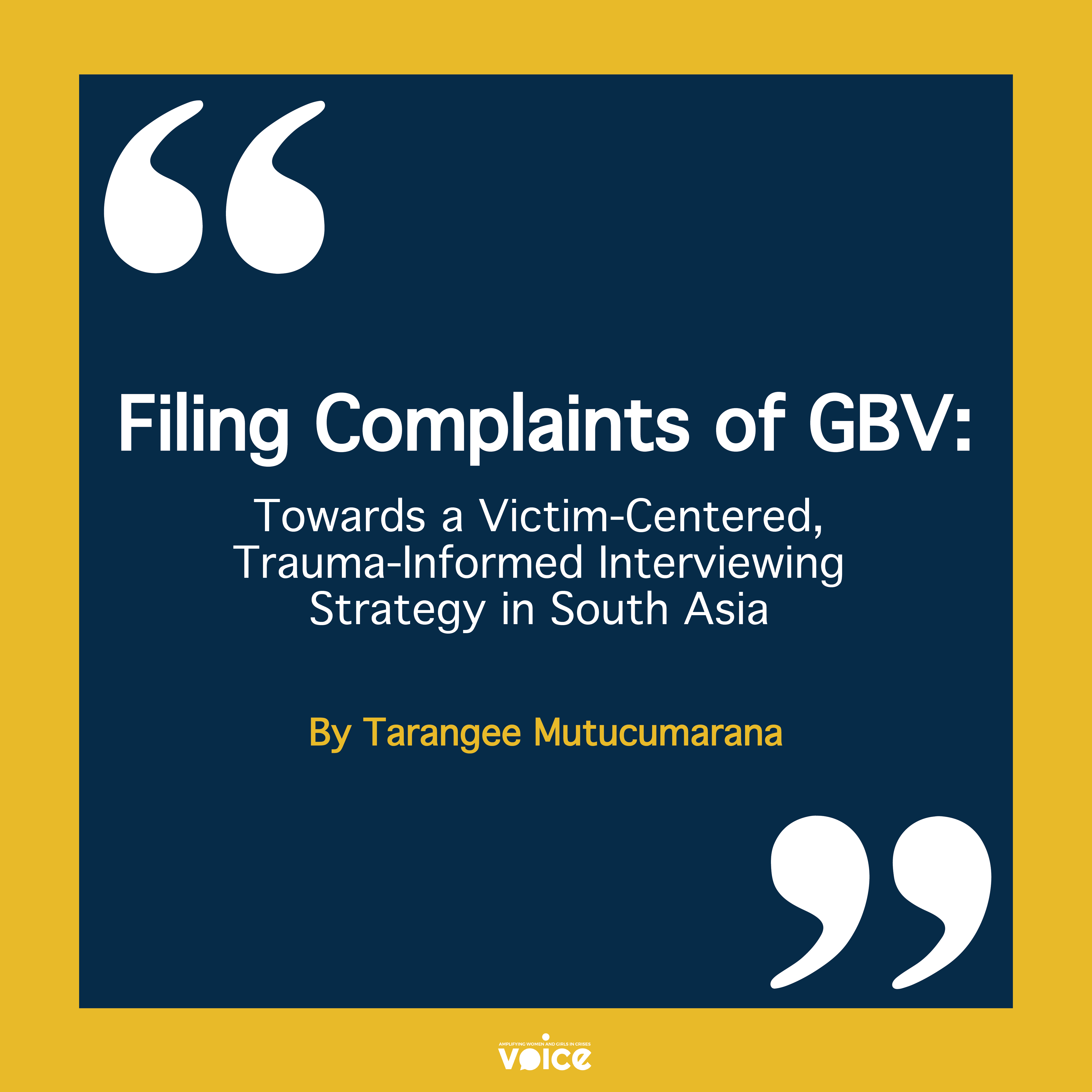By Tarangee Mutucumarana

Access to justice for victim-survivors of sexual violence globally is restricted by various social, cultural, structural barriers and legal complexities which can be better addressed through a keen analysis of the gatekeepers of law enforcement; the police force. These laws, systems and procedures are heavily rooted in patriarchal values and barriers exist at every stage. This article examines these barriers and makes recommendations on moving towards a victim-centred, trauma-informed approach; specifically at the interviewing stage.
The South Asian Status Quo
While some countries in South Asia have existing legislation that addresses aspects of sexual violence, it is systemic and institutional aspects that are riddled with practical barriers for implementation of the laws. For example, the police forces in the South Asian countries are male dominated wherein only a few policewomen. While countries such as Sri Lanka, have a women and children’s desk at every police station, some countries like Pakistan do not, which results in SGBV survivors having to go to a male officer to file the initial complaint, also known as a First Investigation Report (FIR).
These officers are generally not sensitized on matters relating to SGBV and tend to disbelieve survivors and reprimand them for being part, if not entirely responsible. With and End in Sight: Incest in Pakistan indicates that, in cases of incest, survivors are disbelieved as a matter of routine, unless they can present many witnesses to back their claim, particularly the men in her family. According to data collected and published by War Against Rape (WAR) in Pakistan, since 2004, substantial disparities have been reported between the number of FIRs registered and medico-legal examinations conducted, the latter sometimes being greater than three times the FIRs registered for the same offences over the same period.
An Attitudinal Study of the Public Sectors' Response to Rape, stated that some police officers dispose of a case at the investigation stage due to personal biases, particularly if the survivor is older; is a divorcee or has a history of multiple marriages; makes what Police officers believe to be an incredible claim (especially in incest cases); the accused is a man of good repute; the survivor appears confident and calm; or brings evidentiary material(s), among others.
The Police have also been known to interject their own opinions or give misinformation in the FIRs to undermine consistency of a survivor’s story. According to Women’s access to justice in Pakistan, an incorrect or incomplete FIR is extremely harmful to a case as subsequent investigation reports and charge sheets filed in Courts are based on the initial facts narrated by the survivor and recorded in the FIR and disparities can result in a dismissal. Finally, the Police mediate cases of rape inside the Police station in the presence of the accused and the aggrieved party and at times the Police push for marriage between the parties.
So how can we better the behaviour of the gatekeepers, in a socio-cultural setting in which grave crimes against women continue to be committed, condoned, accepted and/or aggravated by state actors?
Recommendations For Systemic Reform
A complaint must be lodged even if there is no evidence, no details of the perpetrator or no probability of being able to prove the allegation in court. Every complaint must be taken with respect and dignity and the principles of legality, necessity, non-discrimination, proportionality and humanity upheld. It must be taken in a language that the survivor is comfortable in, without undue delay, in chronological order, and in adherence to the provisions of the Criminal Procedure Code of each country. In the case of a minor, child friendly, simple language to fit the age and maturity of the child, should be used, while continuously checking that the child correctly understands the questions.
At no point should such an interview be treated as a suspect interrogation. Instead, questions must be formed to assist survivors retrieve information from their traumatic experience. The survivor must never be blamed for her actions and under no circumstance, should the survivor have to make the same complaint multiple times as that would lead to re-victimization. The contact that survivor makes with the police may be the first time they speak of their traumatic experience, and every case must be approached with this in mind and with the understanding that each survivor will not respond in the same manner and may require an individualized approach.
A quick checklist for police officers conducting a trauma-informed interview:
- Refer the survivor for physical or mental medical care if seen to be necessary prior to the interview;
- Introduce yourself with a small background and invite them to do the same;
- Let the survivor guide the interview;
- Keep pre-conceived notions away from the interview and keep an open mind;
- Be cognizant with your eyes and hands and keep other distractions to a minimal;
- Actively listen without interrupting and engage with the survivor in a manner that provides them with an avenue to tell their story;
- Use open ended questions unless you have to gain more information about certain points, in which case closed-ended questions can be used;
- Provide enough time for responses and go at the survivor’s pace;
- Do not force the survivor to answer questions;
- Facilitate breaks whenever necessary;
- At the end of the interview ensure that the survivor has understood all that has taken place at the interview;
- Produce a receipt acknowledging that the complaint was lodged to the survivor;
- Offer an apology for what happened to the survivor and/or how the case was previously handled is the survivor states that it was not handled well;
- Ensure that survivors have your contact information to contact you with questions or concerns;
Provide the survivor with information on mental health and other local services that can assist the survivor further.
At times even having checked the entirety of the above checklist and more, a survivor may not feel comfortable to seek help or make her complaint, but it must be understood that that is ok and that the survivor may come back later. All survivors must be given a choice on how and when they want to seek justice and effort must be taken to show an open mind to the survivor so that they feel comfortable to come back to the police station when they are ready.
Every survivor is unique, and many struggle when engaging or re-engaging in a process and system that is intimidating, which is why it is important for a Multi-Disciplinary Team (MDT) to work on each case as this is an opportunity to collectively evaluate each case with the individual expertise of each team member.
All evidence submitted by the survivor must be dealt with in a manner that protects the privacy and dignity of the survivor and the necessary infrastructure to store such material confidentially must be provided by every police station. The survivor must be informed that this material will be accessed by investigating officers and may become part of the evidence in court.
Transparency with the next steps of the case is vital to strengthen trust and support and a settlement must only be reached if it is in the best interest of the client with her informed consent.
Finally, governments must invest in career counselling service to encourage women to join the police force to break the prevailing gender biases in the system and to ease the burden of disclosure for women. A separate unit or a women and children’s desk must be established in each police station and women police stations must be more accessible and effective. The government must invest in ongoing Trauma-Informed Interviewing trainings for Police officers and there must be a periodic review of the curriculum and training material.
Conclusion
A survivor’s experience with law enforcement can affect the way they approach future interactions with the criminal justice system. By understanding what trauma looks like, accepting that each survivor is unique and will respond differently and by working together to develop and promote victim centered, trauma informed interviewing strategies, investigators can meet the needs of the survivor, increase the likelihood of moving the investigation forward and improve case outcomes.
Trauma-responsive techniques minimize re-victimization, prevent victim-blaming and assist more women to come forward to make complaints without feeling shame. It is only when all officers operate according to the above guidelines that every police station can be turned into a victim centric, trauma informed one, which would assist every woman and girl to make a complaint with confidence and ease. Identifying their individual needs and giving them a voice to seek their justice, through empathy will empower the survivors in their journey of resilience.
Tarangee Mutucumarana is an Attorney at Law and a Barrister at Law of England and Wales, based and practicing in Sri Lanka. She holds a Bachelor of Laws and a Master of Laws from the University of London and works as a Junior Counsel. She has been a Fellow at VOICE since November 2021 and is also Director of the Yeheliya Foundation in Sri Lanka - a non-profit organisation focusing on community development.
